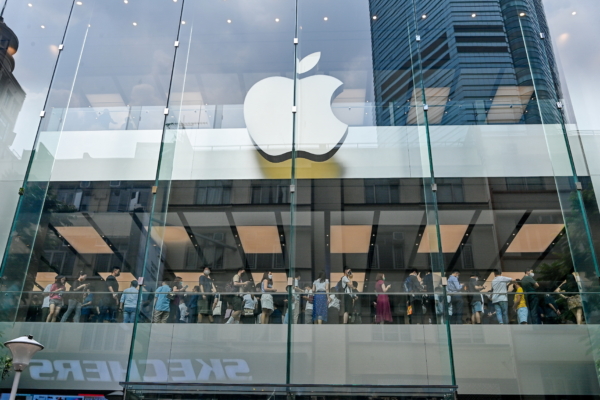Apple Launches New Passport Digital ID Feature: Here's What You Need to Know

[Epoch Times, November 15, 2025] (Epoch Times reporter Li Fang compiled report) Apple has launched a new digital identity authentication feature—Digital ID—providing users with a new way to authenticate their identity in Apple Wallet. Apple explains that this is a secure and confidential method that allows users to create an ID card in Apple Wallet using their U.S. passport information and present their identity via iPhone or Apple Watch.
In a recent press release, Apple's Vice President of Apple Pay and Apple Wallet, Jennifer Bailey, stated, "With the launch of Digital ID, we are excited to expand the ways users store and present their identity—all built on the built-in security and privacy features of the iPhone and Apple Watch."
The first beta version of Digital ID will be rolled out at TSA checkpoints in over 250 airports across the United States for identity verification during domestic travel. Since Digital ID cannot replace a passport, it cannot be used for international travel. Apple plans to expand the application of Digital ID to more locations in the future.
Apple says that even if users don’t have a Real ID or state ID, they can use a digital ID to prove their identity.
According to Bailey, the ability to add a driver's license or state ID to Apple Wallet since Apple introduced it in 2022 has been well-received by users. She stated, "The introduction of digital ID will bring this secure and convenient option to more users across the country; now people can add information from their U.S. passports to their Apple Wallet."
If users do not have a U.S. passport to create a digital ID, they can still add an eligible driver's license to their Apple Wallet as proof of identity.
The Hill reported on Thursday that some people advise against using digital IDs because cracking phone passwords is becoming increasingly easy for hackers, which could pose a risk to users if their phones are stolen. The same applies to law enforcement, as they possess the technology to obtain information from iPhones during searches.
According to the report, data from the nonprofit organization Upturn shows that 2,000 law enforcement agencies across all 50 states have the tools needed to search for an individual's iPhone during an investigation.
However, the Fourth Amendment to the U.S. Constitution protects citizens from unlawful searches and seizures, and a provision in the Electronic Communications Privacy Act (ECPA) of 1986 stipulates that law enforcement agencies must follow procedures, including a search warrant, court order, or subpoena, before obtaining any data on your mobile phone.
(This article references a report from The Hill.)
Editor in charge: Ye Ziwei #



You must be logged in to post a comment.